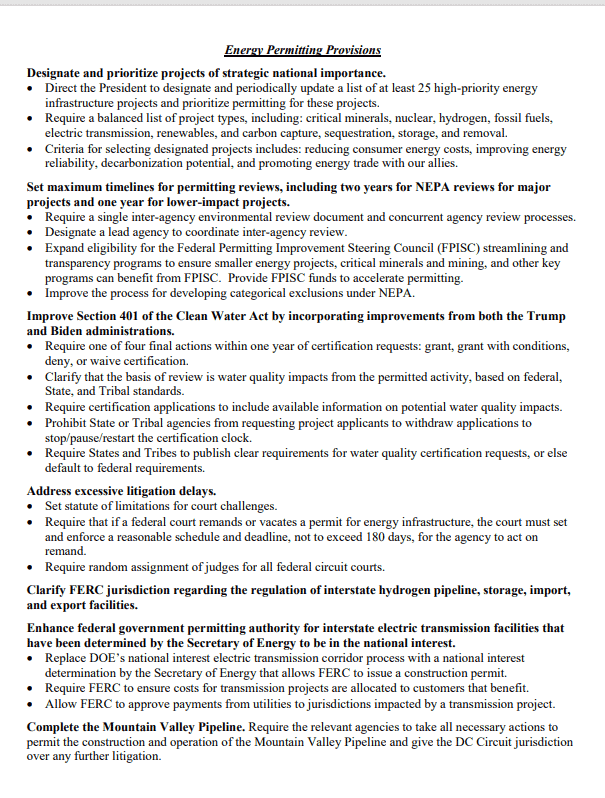
But some people are fairly consistent.. according to Center for Western Priorities:
“These changes to the energy permitting process would occur via legislation separate from the Inflation Reduction Act and would not qualify for the Senate budget procedure, making it impossible to approve a simple majority. The new agreement will need 60 votes to be approved and therefore requires Democratic and Republican support in order to pass.
According to a one-page summary, the new legislation would set new two-year maximum limits for environmental reviews for major projects and would expedite the approval process for energy projects by centralizing decision-making within one agency. It would also make it more difficult to challenge energy projects under the National Environmental Policy Act and would give the Department of Energy more authority to approve electric transmission lines.
The additional legislation is likely to face opposition from environmental groups and Democrats like Representative Raúl Grijalva, the chairman of the House Committee on Natural Resources, who said he’s worried that “comprehensive permitting reform” is a euphemism for gutting foundational environmental and public health protections like the National Environmental Policy Act.
I’m not sure I see much here that would “make it more difficult to challenge energy projects under the National Environmental Policy Act.” (And do “maximum timelines for NEPA reviews” actually work?)
This does insert the Forest Service into the middle of this hot political story, with its the provisions that apply to the Mountain Valley Pipeline on national forest land (and its litigation).
https://news.bloomberglaw.com/environment-and-energy/mountain-valley-pipeline-shield-in-manchin-deal-raises-hackles
“Having Congress institutionalize presidential pressure on an agency would be an extraordinary politicization of the agency’s adjudicative review process,” said Suzanne Mattei, an energy policy analyst for the Institute for Energy Economics & Financial Analysis.
Lawmakers telling courts how to work on cases “would be problematic, and the authority of Congress to be so prescriptive would likely be challenged in courts as violating the separation of powers,” said James Van Nostrand, a law professor and director of the Center for Energy and Sustainable Development at West Virginia University.”
It’s funny that the article says that 1) it’s kind of like the Tellico Dam but 2) it’s really not. I think folks are missing the decarbonization forest and focusing on individual trees (one pipeline, really?).
https://www.reuters.com/markets/commodities/china-starts-building-33-gw-coal-power-2021-most-since-2016-research-2022-02-24/
Again, this seems more symbolic than real. The question is “in the effort to decarbonize, who picks these particular battles, and why?” Keystone XL, Bears Ears, this one.
Lots of local opposition reported in all these cases. So it must be for their reasons, at least to begin with.
https://missoulian.com/opinion/columnists/thomas-j-madison-jr-congress-must-tackle-infrastructure-permitting-reform/article_b1e516ab-fc65-5fb4-b014-596372e1e497.html
Here’s a local commentary on the “side deal” for infrastructure permitting reform. It cites this history: “According to the Federal Highway Administration, a typical project review in the 1970s took an average of two years. In the 1980s, that interval stretched past four years, and from 2002 to 2011, comparable projects waited seven years for permits.” Again, I don’t see a correlation with increasing environmental restrictions. NEPA was adopted at the beginning of 1970. It seems more likely this is mostly the result of typical bureaucratic behavior exacerbated by a decline in funding and staffing. Spreading the same workload over fewer people means things take longer. I think hiring more people would be more helpful than establishing mandatory deadlines for the process.